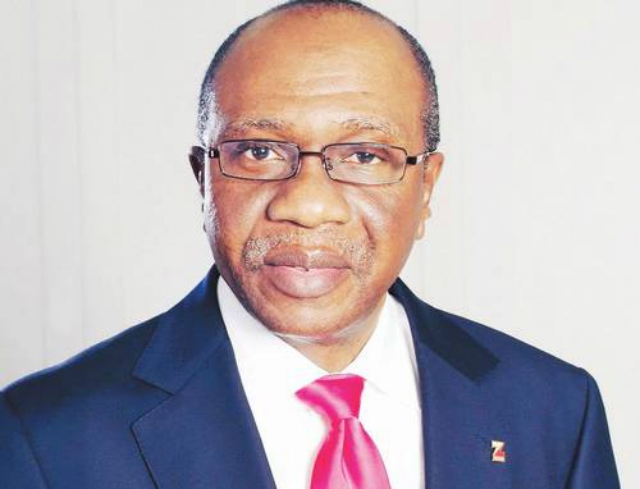The Governor of Nigeria’s apex bank, Dr. Godwin Emefiele, over the weekend explained why the orthodox monetary system is not working for Nigeria’s economy.
The Central Bank Governor gave the details at the Distinguished Leadership Lecture Series of the University of Ibadan where he made a presentation titled “Up Against The Tide: Nigeria’s Heterodox Monetary Policy and The Bretton Woods Consensus”.
At the lecture, delivered at the International Conference Centre of the University, the Governor noted that “balancing the objectives of price stability with output stabilization, especially in the face of external headwinds, remains a challenge to monetary policy”. He also disclosed that the global financial crisis of 2008 – 2009 exposed the weaknesses of many economies across the world. “It exposed the financial inadequacies of conventional monetary policies in tackling the challenges that came as a result of the crisis. As a result, the United States and several countries within the Euro Area fell into a recession between 2008 – 2009”.
While highlighting the CBN experience with unconventional monetary policies tools in light of the challenges being faced by the Nigerian economy, Emefiele stated that “Nigeria’s over-dependence on crude oil for over 60% of fiscal revenue and over 90% of foreign exchange inflows, meant that shocks in the oil market were transmitted entirely to the economy via the foreign exchange markets as manufacturers and traders who required foreign exchange for input purchases were faced with dwindling supplies”.
He listed other vulnerabilities of the economy to include slowdown in government spending (following the fall in government revenue), build-up in the demand for foreign exchange, and high exposure of the banking sector to the oil and gas sector.
The CBN Governor also made it known that in a bid to contain rising inflation and cushion the impact of the drop in foreign exchange supply on the Nigerian economy; the monetary and fiscal authorities took extraordinary measures to tackle the challenges.
He disclosed that in July 2016, the CBN hiked the Monetary Policy Rate from 12% to 14% in order to reign in expected inflationary pressures that may result from exchange rate passing through to domestic prices and ensure that inflation expectations are well anchored.
After analyzing the import bill, the apex bank encouraged manufacturers to consider local options in sourcing their raw materials, by restricting access to foreign exchange on 41 items (now increased to 43). “Four of those items constitute over N 1 trillion of our annual import bill”, Emefiele disclosed.
Explaining the rationale behind some of the measures, Emefiele said “conventional Monetary Policy requires that to encourage domestic production, we should impose higher tariffs and levies. However, our experience in Nigeria has shown that this practice has never worked due to certain inefficiencies in attaining these objectives”.
He pointed out that the unorthodox policies being used presently “were well conceived and have been yielding significant gains for the Nigerian economy”. He gave the rebound in the nation’s economy during the second quarter of 2017 as one of the outcomes of the policies. The decline in inflation, from its peak, 18.7% in January 2017 to 11.37% as at April 2019 was also given as another proof of the workability of the unorthodox policies. Other pointers include the Anchor Borrowers Program as well as the significant improvement in the industrial sector between August 2016 and February 2019.
“I am happy to note that much of the successes we see today is due to the adoption of heterodox macroeconomic policies. Our overall aim remains the concurrent attainment of price stability, real growth, full employment and poverty reduction”, the Governor stated.
Packaged by Wole Adejumo






































































